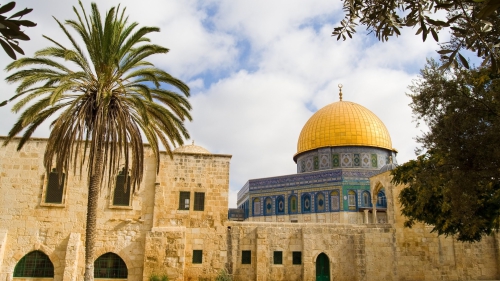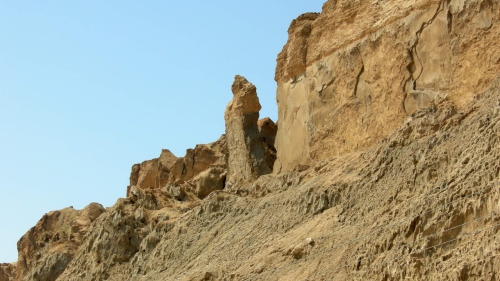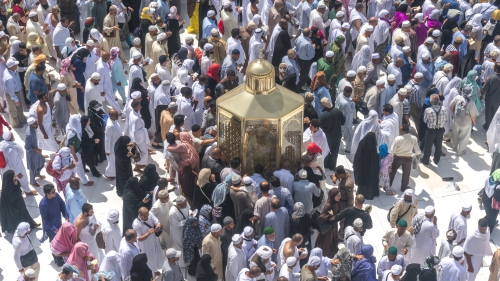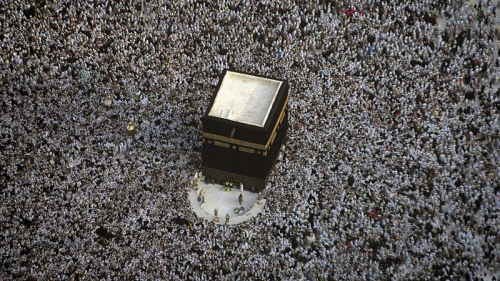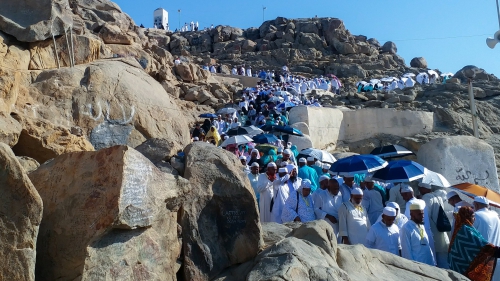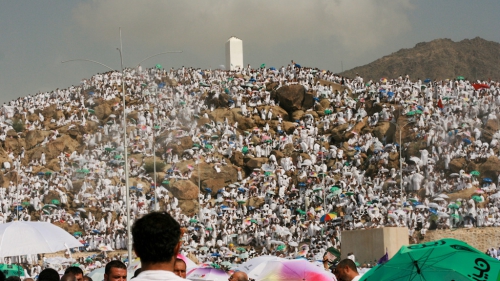How Abraham Initiated Globalization
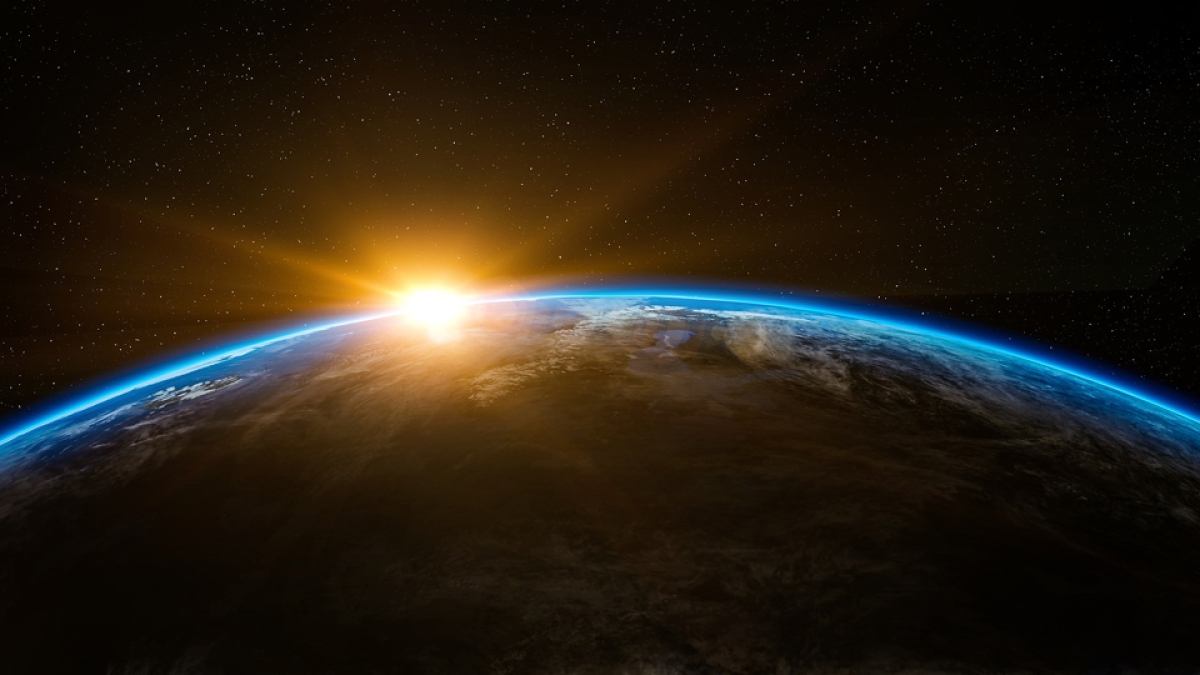
Social scientists, historians, and economists have been running something of a competition to theorize the origins of the two hallmarks of our time: The catalyst that occasioned the modern era, and the event-onset of globalization.
They’ve mostly spun sightlessly from speculation to conjecture, blinded by the cowls of secularism they must wear. This causes them to miss the real driver of social transformation among humanity—the divinely ordained brotherhood of the prophets of tawhîd, or revealed monotheism.
Anyone who studies prophethood can easily discern the celebrated harbinger of both. Abraham pbuh, father of prophets. Two aspects of his advent are decisive in history: His coming ushers in a new era for humanity, and he enters as the inspired herald of the end of time, the vast bulk of humanity’s generations having already passed from the earth before him. So in mission and message, Abraham pbuh proclaims the inevitability of the modern era and globalization.
Before Abraham pbuh, humanity is not nearly as connected as it is after him. Peoples in the eras preceding him fundamentally live in their own worlds. That is why, as the Quran tells us, to each one God sends its own messenger, a brother from among themselves, with a specialized message directed exclusively to them.
That is also why there is so little meaningful continuity between the nations before Abraham pbuh. A people would rise to prominence. A messenger would be awakened among them. He would call them to Oneness and away from their self-styled idols. He would condemn their treatment of their downtrodden and poor—for always the exploited were the “necessary” byproduct of a people’s propagated identity. And bleakly he would censure the very particular vices that they claimed their beliefs arrogated to them.
Then the people would disbelieve. Then God would bring down a shocking cataclysm upon their heads, or from beneath their feet, or from before their very faces, or from behind them, unaware—until the unmoved earth and tearless sky swept their faceless corpses and traces into silence. Then another messenger would arise among a successor people.
The Run Up to Abraham
Yet there is perceptible motion among humanity preceding Abraham pbuh. In travel. Gradually the trade routes become more established and better. In recording. It grows easier to keep records of human events, and so to obtain them. I would guess that improvement in political organization could similarly be detected, until out of these sophistications a people like the Romans can envision a global empire; whereas in pre-recorded history, the notion of empire as such is unrealized (not to say that expansive realms didn’t exist).
But when the new era verges, nothing but a change in prophethood can usher it in and match the unprecedented capaciousness of its mind.
So it is the mission of Abraham to reintroduce monotheism in the globalizing world—and this time for good. For the world will never after return to a state vacant of monotheism.
And how could it? The elaboration of travel, the capacity for capture of datum and occurrence—and now the expansion and elevation of prophethood—all the elements of returning man to a whole-earth, human-wide level of home, place, and space existence would make it forever unnecessary to reinstate monotheism in the world.
Abraham, and the Sacred Way Ever After
This speaks to Abraham’s unique God-given characterization in the Quran as a nation, or community in entirety, in himself (Sûrat Al-Na^l, 16:120).
Thus Abraham—exemplar of monotheism, devoutly obedient to the immutable morality set by God for all humankind—goes where God commands him in the earth, his purpose to sow the seeds of taw^îd, the Oneness of God, therein, and to set its geo-spiritual axes for all human beings and nations after him.
Centrally, in this quest, Abraham raises the foundations of the Ka¢bah, the very First House of God established on earth, and simultaneously purifies it for worship and reestablishes the human obligation of pilgrimage in the season of Hajj to it.
This is crucial. For had humanity not come full circle to the threshold of globalism, Allah would not have had Abraham pbuh raise up the Ka¢bah’s foundations to reintroduce it to us for these four specific purposes: (1) For the Hajj as the unifying focal point of humanity; (2) as our human origin in the world; (3) as the source of the cardinal directions, from which east becomes east, west west, and north and south the left and the right respectively; and (4) as the culminating place and rite of all human worship of Him as Sole Divine. Before Abraham, it would have been too much to expect a person on the other side of the world to make Hajj.
This leaves us with an important question. Where did God command Abraham to go, aside from the Valley of Tears, Bakkah, where Makkah stands? He went to three other places: Iraq (where he was born and started his call to taw^îd). Al-Shâm (Greater Syria, which hosts the Furthest Sacred House, Al-Aqsa, in Jerusalem). And Egypt. Indeed, the event of building and re-sacralizing he Ka'bah of Makkah comes last on this inspired itinerary, and thus does the last become first.
If we look at these four regions, we see that today they share certain defining characteristics:
- All are predominantly Muslim
- All are Arabic-speaking, which naturally keeps them closely tied to the Quran, the Sunnah (Way) of the Prophet Muhammad pbuh, and Islam
- All have tangible connections between them and Heaven: (1) The sources of the Nile and Euphrates are in Heaven. (2) The Ka'bah in Makkah holds the Black Stone, a stone of Heaven, and is connected with Al-Bayt Al-Ma'mûr (The Much-Frequented House (by the Angels in pilgrimage) in Heaven. (3) And in Al-Shâm, in Jerusalem, within the Sanctuary of Al-Aqsa Mosque (established by Abraham pbuh 40 years after the Ka'bah), there is a Stairway to Heaven from The Sakhrah—the Stone from which the Prophet Muhammad œ ascended to Heaven during the Mi'râj, Ascent to Heaven
- All exist in or near the desert
- In the case of Makkah, Iraq, and Egypt, civilization has been made possible by miraculous water: Zam Zam, the Nile and Euphrates (as above-mentioned)
- They hosted the oldest civilizations in the world
- They occupy the most central geographic position in the world, and hence its central trade routes must pass through them
- The region as a whole God has blessed with rich natural resources
- None of the Holy Scriptures (The Torah of Moses pbuh, The Evangel of Jesus pbuh, or The Quran) specifies any place outside of this region. Rather, all the events of the Revealed Scriptures occur within these places.
Makkah enjoys a special station as the place of the Hajj-Pilgrimage, we’ve noted. But set it aside and look at the modern-day political conditions of the Abrahamic countries, Egypt, Syria, and Iraq. Each is in calamitous upheaval, metamorphosis from which they shall not return to their previous socio-political states.
In this context, let us recall the command of God to Abraham pbuh, to call people—all humanity!—to His Oneness and worship, to make the Hajj-Pilgrimage to His House.
What does Abraham, stark in the desert vale, do? He ascends Mount Abî Qubays near the Ka'bah and cries out, against all the odds, in this wilderness to the far-flung family of man, who cannot hear him. He calls man to return to his origin, to the sole worship of his Sole Creator, to the singular, most unifying, comprehensive, and equalizing Pillar of Worship, the Hajj-Pilgrimage.
He proclaims and Allah conveys.
It is as if we can hear his prophetic, clarion voice ring out upon the winds and through the ages today, calling humanity to return all together, in unified peace, to the pure, easy, and upright belief in God, the One, and to the faith and prophetic conduct this entails.
*****
Source: Al-Jumuah








